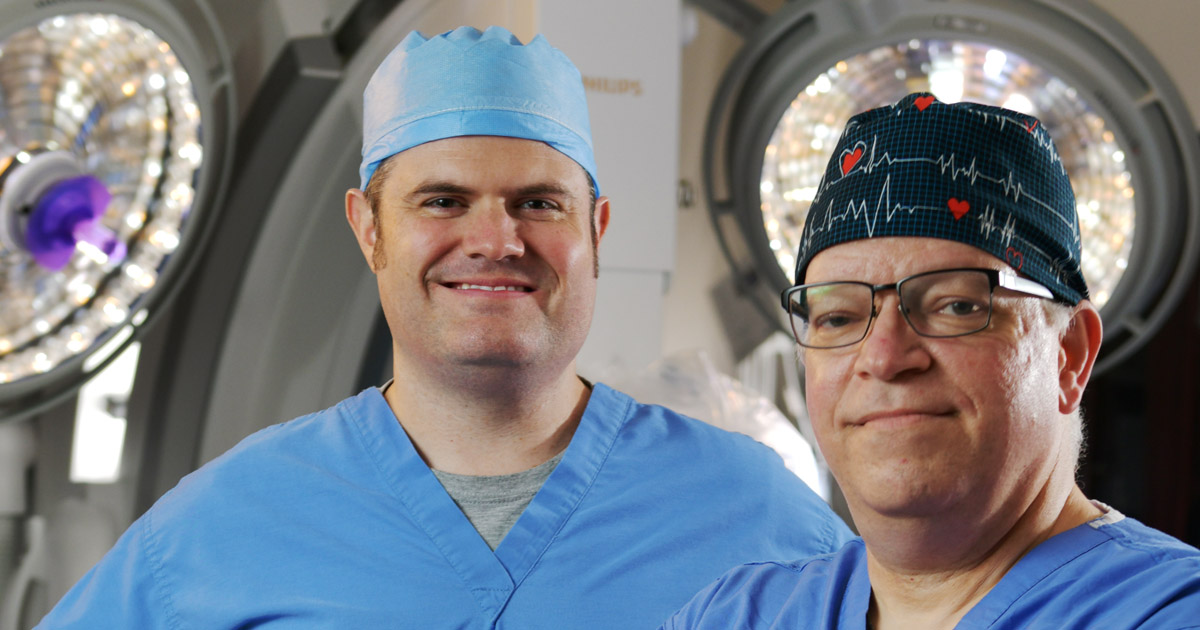
Atrial fibrillation (AFib) is the most common heart arrhythmia, impacting more than 5.1 million people in the United States. AFib is defined as an abnormal heart rhythm originating from the top chamber of the heart called the atrium. With this condition, the top chambers of the heart quiver or “fibrillate”, hence the name, Atrial Fibrillation. When a patient has AFib, his or her heart beats irregularly and does not move blood properly, which makes this patient as much as five times more likely to have a stroke. This condition can also result in blood clots, heart failure and other heart-related complications.
To treat AFib, a cardiac electrophysiologist will work to improve the rhythm and blood flow through the heart. Some patients are able to take medication to address irregular heart rhythms, while others require a cardiac ablation. To treat problems with blood flow, many patients take blood thinners, which reduce the risk of clotting, and in turn reduces the patient’s risk of stroke. Overall, the treatment plan is tailored to the patients’ needs.
Other possible treatments for AFib include the implantation of a pacemaker in situations when the heartbeat is too slow, and a defibrillator when the heartbeat is too fast. The Watchman procedure and the hybrid ablation therapy procedure are used for qualifying patients with long-standing AFib. These are permanent implants that offer an alternative to the lifelong use of blood thinner medication.
Because of these advanced procedures and techniques, the Heart and Vascular Institute of Eastern Kentucky at PMC has received full Atrial Fibrillation Certification status from the Society of Cardiovascular Patient Care.









